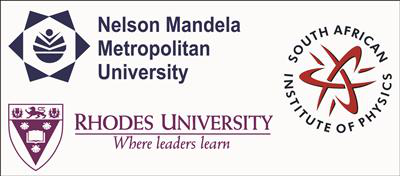Speaker
Level for award<br> (Hons, MSc, <br> PhD, N/A)?
No
Abstract content <br> (Max 300 words)<br><a href="http://events.saip.org.za/getFile.py/access?resId=0&materialId=0&confId=34" target="_blank">Formatting &<br>Special chars</a>
Educational research has demonstrated the benefits of interactive teaching methods. Research also reports that the electronic classroom response system (clickers) promotes interactive teaching methods, especially those that involve group and class discussions. In the classroom the clickers are used to promote interactive student engagement and to provide immediate formative feedback of the students’ learning. This paper reports on the ongoing research conducted on the use of class room response systems as a tool to facilitate interactive student engagement in class discussion in the Physics Department, at the University of the Western Cape. The results of a survey on the experiences of the Physics students regarding the use of the classroom response systems, clickers and colour-coded flash cards (a low tech version of the clicker), in class discussion will be presented and discussed. The purpose of the survey was to assess if the use of clickers in class discussion (i) influences students’ participating in class discussions, (ii) improve students’ understanding of subject content, and (iii) whether students enjoyed class discussion using the clickers and colour-coded flash cards. During the survey, the students were also asked to reflect on the use of colour-coded flash cards in class discussions. These results will be compared with those obtained using clickers. The results obtained suggest that classroom response systems are a useful tool which engages students in class discussions as well as for both the facilitator and the students to monitor students’ learning. Similar results were obtained from the colour-coded flash card survey. The results show that the students enjoyed both the clickers and colour-coded flash cards for class discussions, however, more so with clickers.
Apply to be<br> considered for a student <br> award (Yes / No)?
No
Would you like to <br> submit a short paper <br> for the Conference <br> Proceedings (Yes / No)?
Yes
Please indicate whether<br>this abstract may be<br>published online<br>(Yes / No)
Yes

